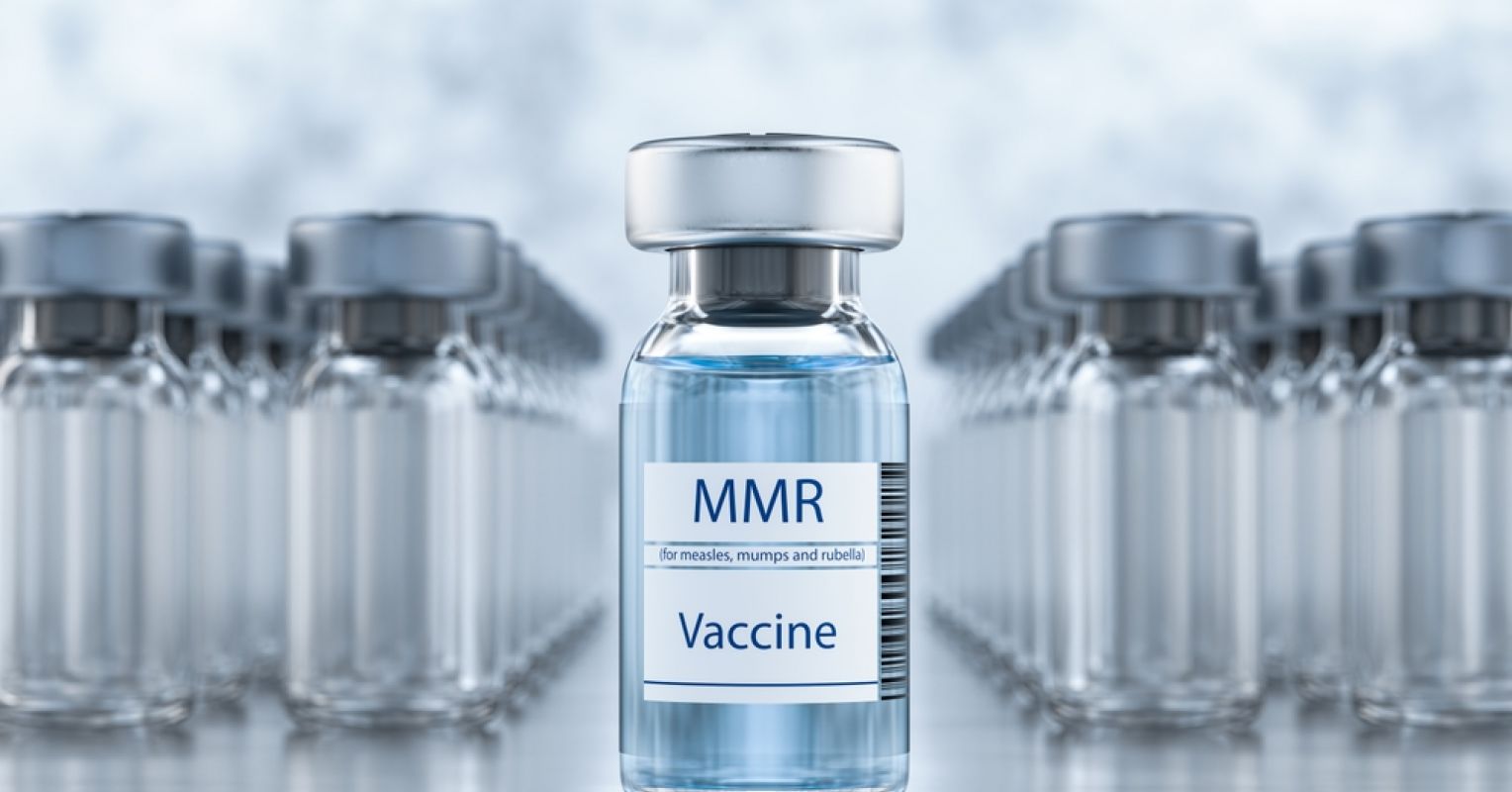#autism
#autism
[ follow ]
#adhd #cdc #vaccines #neurodiversity #mental-health #inclusive-toys #public-health #vaccine-safety #missing-child
fromPsychology Today
3 days agoAutism Barbie? I'm Not a Fan
At first, and for many, this new doll seemed to be an amazing idea. After all, she potentially can open discussions with neurotypical children about their neurodivergent peers that may act a bit differently than they do. That's positive, right? So, if that's the case, why did this doll evoke such a deep feeling inside of me, not one of elation, but rather one of disappointment and frustration?
Social justice
fromThe Nation
4 days agoICE Brutally Dragged This Disabled Woman Out of Her Car. What Happened Next Was Just As Chilling.
"As an autistic person, it was particularly difficult to understand what the officers wanted me to do," Rahman said. "I personally experience audio sorting challenges as an autistic person. This makes it so that voices near and far are prioritized in the same way, making it difficult for me to figure out who is talking to me. Because of this, I tend to rely on reading lips. You can imagine how difficult it was for me to try to read lips when ICE officers are completely masked."
US politics
Health
fromwww.theguardian.com
2 weeks agoI was bullied in school for being different. At 16, I hit a crashing point': the awkward kid who became the world's strongest man
Tom Stoltman transformed from a shy, autistic, bullied teenager into a 180kg professional strongman through disciplined training, strict eating, routine, and brotherly support.
fromwww.theguardian.com
2 weeks agoStudy debunks Trump claim that paracetamol causes autism
This systematic review and meta-analysis found no evidence that maternal paracetamol use during pregnancy increases the risk of autism spectrum disorder, ADHD or intellectual disability among children, says the study, which is published in the Lancet Obstetrics, Gynaecology and Women's Health. It has been undertaken by a team of seven researchers from across Europe, led by Asma Khalil, a professor of obstetrics and maternal fetal medicine at City St George's, University of London, who is also a consultant obstetrician at St George's hospital in London.
Public health
fromLGBTQ Nation
2 weeks agoTransphobes freak out over new autistic Barbie doll because she has an app to help with "pronouns" - LGBTQ Nation
The doll, which was created with input from the autistic community, comes with several accessories that "represent common ways autistic people may experience, process, and communicate about the world around them," Mattel's press release states. These accessories include a pink finger-clip fidget spinner to reduce stress and improve focus, noise-cancelling headphones to reduce sensory overload, and an electronic tablet with Augmentative and Alternative Communication (AAC) apps to help non-verbal autistic people interact with others.
LGBT
Mental health
fromBusiness Insider
2 weeks agoI took a career break to travel in my 40s, but even that exhausted me. I reparented myself - and finally learned to slow down.
A prolonged career break and world travel led to ADHD and autism diagnoses, prompting self-reparenting, presence, and acceptance beyond external achievements.
fromwww.theguardian.com
3 weeks agoMy favourite family photo: This is a happy picture and also saturated in grief'
I remember the moment this photo was taken: five years ago, on my partner Claire's birthday, in a National Trust for Scotland garden six miles east of Edinburgh. We were standing on a wooden deck, an ideal spot for pond-dipping with the kids and a lesser-known viewing platform for trainspotters. This is where my autistic son, then six, loved (and still loves) to jump in tandem with the ScotRail trains toggling back and forth in the middle distance.
Parenting
fromwww.npr.org
1 month agoIt's the 'gold standard' in autism care. Why are states reining it in?
Diagnosed with autism at 14 months, Aubreigh Osborne started this year struggling to control outbursts and sometimes hurting herself. Her trouble with social interactions made her family reluctant to go out in public. But this summer, they started applied behavior analysis therapy, commonly called ABA, which often is used to help people diagnosed with autism improve social interactions and communication.
Public health
fromPsychology Today
1 month agoOvercoming Failure to Launch in Emerging Adults With Autism
Maybe you've even enrolled in one of these programs-only to watch your emerging adult withdraw further or completely shut down. I've worked with families who invested significant time and money in conventional programs with devastating results. In one recent case, after 18 months with no progress, the program recommended dropping their autistic son at a homeless shelter to motivate him. This would have been a disaster because it completely missed what was actually happening.
Parenting
Mental health
fromBuzzFeed
1 month agoI Was Always Tired And Never Knew Why Until I Recognized The Same Pattern In My Children
Parenting an autistic son revealed the parent's own neurodivergence, prompting new caregiving approaches and reframing lifelong struggles with attention, organization, and social exhaustion.
Public health
fromLos Angeles Times
1 month agoIn search for autism's causes, look at genes, not vaccines, researchers say
Autism most likely results from complex gene-environment interactions during prenatal development; no single postnatal trigger such as vaccines has credible evidence as a universal cause.
fromIndependent
1 month agoTwo Wicklow mothers share hell of being forced to live in emergency accommodation - 'What's so scary is I can't feel secure'
A single mother to two autistic children, who had to leave her home in Bray at the end of November, has been placed in emergency accommodation over 100 kilometres away in County Wexford, despite both of her children attending primary school in the town.
Miscellaneous
fromwww.theguardian.com
1 month agoA better understanding of mental ill health is crucial | Letters
The increase in reported mental health problems and neurodevelopmental diagnoses, and services not keeping pace, reflect what many clinicians see every day people are in more distress and unable to access support. The suffering is not fake, nor is it a case of gen Z malingering. Patients are struggling with what were once ordinary demands of life: school, work, relationships and family, complicated by the aftermath of Covid, with blurred boundaries between home and work, and life lived increasingly on screens.
Mental health
fromwww.bbc.com
1 month agoFrom brushstrokes to brands: The studio helping adults with learning disabilities
Now her organisation works with more than 90 artists each week, providing studio space, materials and tuition. Some of their works have been exhibited, commissioned and sold, with artist Shruti designing the advent calendar for beauty brand Lush, and Seatton painting the cover art for Irish music artist CMAT's second studio album, Crazymad, for Me. Meanwhile, Richard's painting called SHIP was featured in last month's edition of the House and Garden magazine.
Arts
Non-profit organizations
fromThe Mercury News
1 month agoWish Book: 'My days consisted of tears': Parents band together to provide help, hope
Parents Helping Parents provided language-accessible guidance and peer support that transformed a refugee mother's ability to navigate services for her child with autism and disabilities.
UK politics
fromwww.theguardian.com
1 month agoThe right's mental-health overdiagnosis bandwagon is rolling. Wes Streeting should not be on it | John Harris
An independent review into mental health, ADHD, and autism risks reinforcing overdiagnosis narratives and conflating mental illnesses with neurodevelopmental conditions for political purposes.
Non-profit organizations
fromwww.mercurynews.com
1 month agoWish Book: My days consisted of tears': Parents band together to provide help, hope
Parents Helping Parents provided crucial language-accessible advocacy, guidance and peer support that transformed a Vietnamese immigrant mother's ability to navigate services for her autistic son.
New York City
fromwww.mercurynews.com
1 month agoMother of missing New York boy admitted she was a single mother' before changing story
A 50-year-old Brooklyn woman refused to disclose the whereabouts of her 11-year-old autistic son, made contradictory statements denying motherhood, and gave unusual identity claims during investigators' search.
fromIndependent
2 months ago'She is an absolute miracle' - How this Wexford girl overcame brain injury to dance on Late Late Toy Show
As the weeks near towards Christmas Day, one young Wexford child is preparing to give the greatest gift of all; inspiration that anything can be overcome with hard work and passion. Nine-year-old Poppie Davies Messett from Gorey, was born with a brain injury to parents Hollie Davies and Gary Messett. Having spent days in the ICU and been just recently diagnosed with autism and dyspraxia, Hollie never imagined that she would be bringing her daughter to rehearsals after being offered a spot on the Late Late Toy Show.
Miscellaneous
Mental health
fromLos Angeles Times
2 months agoAutistic youth are more likely to think about and die from suicide. What parents need to know
Autistic youth face higher rates of suicidal thoughts, attempts, and mental-health challenges, requiring autism-tailored screening, safety plans, and adapted therapies.
Mental health
fromLos Angeles Times
2 months agoIdentity first, or person first? Guidelines this series follows when writing about autism and mental health
Use person-first language for mental health conditions and many disabilities; use identity-first language for autism when preferred, and honor individual language preferences.
Mental health
fromLos Angeles Times
2 months agoAutistic kids are at higher risk of suicide. Why don't their parents and doctors know?
Autistic adolescents who mask traits face higher suicide risk and require tailored screening, therapies, and safety plans that recognize different thinking patterns and warning signs.
fromwww.standard.co.uk
2 months agoAutistic man trapped in his London home for eight years is paid 125,000 in damages
As a mum, it was heartbreaking to see. The impact has left him emotionally distant, unable to trust, and a shadow of the vibrant person he once was. For years, we pleaded with the council to do more to help our son, only to feel ignored, dismissed, and gaslit. Only once we consulted lawyers did we realise just how poorly the local authority's conduct and inaction had been.
Law
[ Load more ]












































